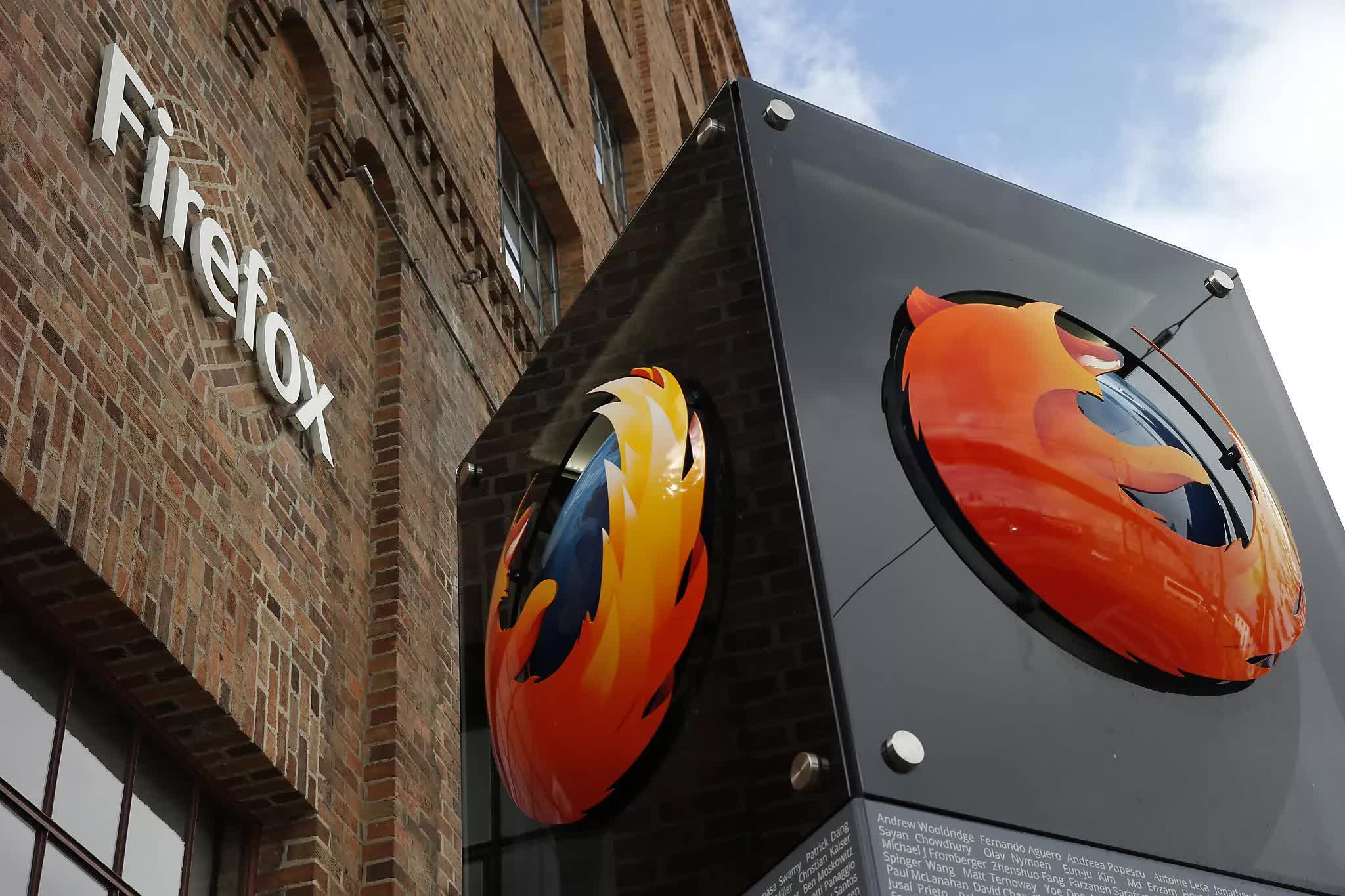Mozilla has a close relationship with Google, as most of Firefox’s revenue comes from the agreement keeping Google as the browser’s default search engine. However, the search giant is now officially a monopoly, and a future court decision could have an unprecedented impact on Mozilla’s ability to keep things “business as usual.”
United States District Judge Amit Mehta found Google guilty of building a monopolistic position in web search. The Mountain View corporation spent billions of dollars becoming the leading search provider for computing platforms and web browsers on PC and mobile devices.
Most of the $21 billion spent went to Apple in exchange for setting Google as the default search engine on iPhone, iPad, and Mac systems. The judge will now need to decide on a penalty for the company’s actions, including the potential of forcing Google to stop payments to its search “partners completely,” which could have dire consequences for smaller companies like Mozilla.
Its most recent financials show Mozilla gets $510 million out of its $593 million in total revenue from its Google partnership. This precarious financial position is a side effect of its deal with Alphabet, which made Google the search engine default for newer Firefox installations.
The open-source web browser has experienced a steady market share decline over the past few years. Meanwhile, Mozilla management was paid millions to develop a new “vision” of a theoretical future with AI chatbots. Mozilla Corporation, the wholly owned subsidiary of Mozilla Foundation managing Firefox development, could find itself in a severe struggle for revenue if Google’s money suddenly dried up.
Almost hoping this somehow causes browser support to fracture again.
It would be a pain for developers, but firefox and chrome using a gig of ram to view webpages and play videos is horrendous even with isolated design.
Also because I’m tired of google dictating the www by being a monopoly. It’s 2024 and jpegxl is being treated as ransomware as if enabling a god damn image format is too hard for web browsers. HTTP3/QUIC was 100% google’s invention that they just threw onto the web because no one else is developing this standard anymore. Manifest v3 is an explicit attempt to limit user control over web content. They even cornered the market along with Microsoft using gmail.
It would be a pain for developers, but firefox and chrome using a gig of ram to view webpages and play videos is horrendous even with isolated design.
That can’t be helped. Hard to explain well without knowing how much CS you’re familiar with, but basically in order to guarantee security/user safety you have to sandbox each tab (basically running an entirely separate container program for each tab which constantly checks for illegal memory access to prevent it from being exploited), all separately running their own interpreters for javascript/typescript, HTML, CSS, all of which are very resource intensive (mainly javascript/typescript). There’s not really any getting around this, no matter how well you design your browser.
Now, theoretically, with the growing popularity/advances in WebAssembly, and increase in usage of frameworks/graphics APIs like WebGPU, you could completely get rid of that sandboxing and completely get rid of the extremely slow javascript and html/css, in favor of completely using safe, compiled Rust programs. There’s active research using versions of WASM which only accept completely safe code (mainly safe Rust code) so using memory bugs generated from user error to access data in different tabs becomes impossible (aside from potential unaddressed bugs in Rust itself obviously) and you don’t need to sandbox each tab – the program practically sandboxes itself. Then you could potentially have browsers with thousands of tabs perform perfectly fine, assuming each of the websites is programmed competently.
But that’s not going to happen, because billions of users rely on HTML/CSS and JS, and it’s not pretty to transition away from. Getting rid of it would be like getting rid of pointy shoes, or getting rid of US Customary Units in the US, it’s just not happening no matter how much benefit it would bring to users. It’s not so much of a browser company issue as it is everyone ever would complain and potentially trillions of dollars of damage would be done. Also frontend web devs can barely punch out a “hello world” program in JS so there’s no way most of them are gonna be touching Rust or Haskell or something.
Also frontend web devs can barely punch out a “hello world” program in JS so there’s no way most of them are gonna be touching Rust or Haskell or something.
This is kind of true, but at the same time, I’ve also seen some pretty talented front-end devs fwiw.
If this hurts Firefox more than it hurts Chrome, that’s probably not a good thing for the health of the Internet. Google running the Internet unchecked would be bad for everyone.
It’s a threat to the Mozilla CORPORATION, not the Mozilla Foundation nor the browser.
Nothing to be really scared about. Move along.
why do you think the Mozilla corporation losing 86% of their revenue wouldn’t hurt the Firefox browser?
There was a well sourced video a few months ago that showed where the money is going. Long story short, not into development, for the most part.
Well, only way I can figure it wouldn’t effect the foundation, is that the corporation is a wholly owned subsidiary of the foundation, presumably this is to protect the foundation financially and legally from anything that might happen to the corporation.
The corporation is owned by the foundation, and does most of the browser development. If you want the browser development to continue, it is a concern.
Not necessarily. Corporate money has a hidden contract. Mainly, you will develop what we tell you to develop and you will stall what we tell you to stall.
Google money is ad money. It’s DRM money, it’s private silo money, not general development money.
If you believe corporations drive all good development in the world, look at how many projects have been bought and killed by Microsoft.
In fact, why would Firefox accept money from one of its competitors? That’s SUPER fucked up.
Just think about the anti features that Google mmay want Firefox to implement: Unlockable ads, third party cookies, user tracking, and so on.
Is tha the development we want?
I say, let’s open fundraisers and keep Firefox free of corporate influence.
$510MM out of $593MM?!? WTF Mozilla?
The problem is: who is going to hive money for a web browser?
They got a one of a kind deal with Google, which ended up being problematic, but where else are they going to find the same thing?
Asking for donations will get you chump change.
This. Web engines cost a tremendous amount to develop.
Donations won’t raise hundreds of millions per year, unless they get serious commitment from the enterprise sector, which has already settled on Chromium unfortunately.
They’re in a tough position.
Don’t worry, we have a possible replacement for Mozilla, meet Ladybird
2026 though…
That’s a pretty good date. Browsers are monstrous software projects. I just wish it was written in a memory safer language. Oh well.
So who’s going to fund that who can’t fund Mozilla Foundation?
At least with this project when you donate it goes to direct development.
Zuckerberg : Heyyy…
Do you mean the other software projects or the other non-software projects?
If the former, there is the Open Technology Fund (OTF), but it is affiliated with USAGM which is part of the government.
This project looks very cool, I hope it comes to be
Fuck.
I guess they read the room and this is why they started delving into the ad business
So Mozilla will find other forms of funding. That’s how this works.
Chrome is the existential threat to FireFox.
Chrome is… Also Google.
Break up Google, make chrome competitive, and then we’ll stop seeing advertisers own the web standards and implement things like AVIF and ManifestV3, and instead embrace open solutions that favor users.
The JPEG XL vs AVIF thing still makes me mad.
situational irony
#BreakThemUp
Specifically separate the browser side from the advertiser side. Get rid of that conflict of interest.
I hope some governments and EU see the need of a foss browser engine alternative from a non-profit and stuff some Money there
quite a good chunk of that goes to their ceo anyway.
I am livid over her absolutely disgraceful management over Moz. When electron was building a de facto monopoly of Chromium on the desktop she made no moves to produces equivalent tooling. While Node grew into a behemoth she totally ignored it. The only thing that has come out of Moz in the last decade that mattered was Rust, and she’s already fired the Rust team. She is poison and serves only to suck up a salary that could fund development.
Mozilla needs its wake up call and to start being the underdog that makes something worth doing. With Manifest V3 and the anti-trust case on the horizon they have a fork in the road that will define what becomes of them. Hopefully she can make one good decision and it’ll be the right one.
thats ceos for ya.
i doubt they will escape from going through some bad times.
Will this make ladybird our only hope overnight?
I needed, I would pay $5 per month in perpetuity for access to Firefox. Fuck google
You’d need a hundred million people sign up for that $5 subscription to make up for Google’s bribe.
You mean 510 million divided by 12. That’s “only” 42.5.
Your math is off. It would take 8.5 million people donating $5 a month, to equal the 510 million a year from Google.
My math (please correct me if I am wrong):
$510 million / 1 year
$ X / 1 month?
$510 million / 12 months = $42.5 million / 1 month
$42.5 million / $5 per person a month = 8.5 million people a month
Is it not
5 x 12 = 60
$510 000 000 / $60 = 850 000
$60 is one year of subscription for if user.
850 000 users need to pay 60 dollar per year to amount to $510 000 000.
(Or 510 000 000/5 = 10 200 000 users per month to reach the same amount monthly.)
510 / 60 = 8.5I see that I missed a zero (510000000/60=8 500 000). That numbers didn’t seem plausible when I did the calculation.
You’re right. My European ass sees revenue and salaries as monthly
Also, Mozilla says that it spends only $220M on software development expenses, so if 100% of the money went to that it would only require 3.7 million people paying $5 per month.
But, IMO, if the Google money spigot is turned off, it might be that other companies that rely on web browsers (Apple, Amazon, Netflix, Microsoft, etc.) will want to spend at least a few tens of millions on Firefox. That would mean that end-users wouldn’t need to support the entire cost of developing it.
Right now, everyone except Apple uses Blink which is a Google project tied to Chrome. Since Google has been found to have been illegally abusing their monopoly, the status of Chromium / Blink has to be uncertain. It would be smart insurance for these companies to ensure that Firefox doesn’t go away in case something happens to Blink.
There are dozens of us!!
At least 2, at the moment.
Three
Four… maybe even $10/mo after the manifest v3 chaos hits in full force.
Exchange rate is a bitch, but id chime in and do my part as well.
good. Maybe firefox will die like it should have long ago















